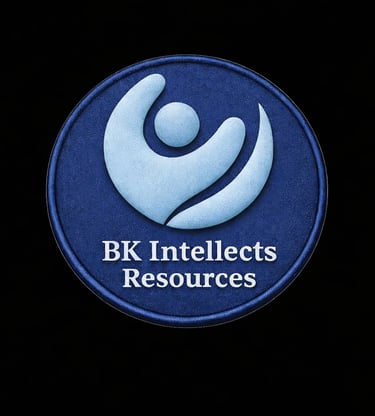Strategic Leadership: Types and Essential Skills for Organizational Success
Strategic leadership involves taking a long-term perspective, considering multiple options and making informed decisions that align with the organization's goals and values. Effective strategic leadership enables to make sound decisions that create value for the organization.
Eddy Bala
2 min read
Strategic Leadership
Strategic leadership is a critical component in steering organizations towards success. A strategic leader not only envisions the future but also crafts a roadmap to achieve it. This blog post explores the different types of strategic leaders and the essential skills they need to effectively manage and turn around their organizations.
Types of Strategic Leaders
Strategic leaders can be broadly classified into several types based on their approach and focus:
Visionary Leaders
Visionary leaders are known for their ability to foresee the future and inspire others with their vision. They are adept at identifying long-term goals and motivating their teams to work towards these aspirations. Their ability to communicate a compelling vision often drives innovation and transformation within the organization.
Transformational Leaders
Transformational leaders focus on change and innovation. They are skilled in recognizing the need for change and driving processes to achieve it. These leaders are excellent at empowering employees, fostering a culture of continuous improvement, and encouraging creative problem-solving.
Transactional Leaders
Transactional leaders operate within existing systems and structures, focusing on performance and results. They emphasize clear tasks, rewards, and penalties to achieve organizational objectives. While they may not drive radical change, their strength lies in maintaining stability and efficiency.
Essential Skills for Strategic Leaders
Regardless of their type, all strategic leaders share certain essential skills that enable them to guide their organizations effectively:
Strategic Thinking
Strategic leaders must possess strong strategic thinking skills. This involves the ability to analyze complex situations, identify opportunities and threats, and develop comprehensive plans to achieve organizational goals. Strategic thinking also includes the capacity to anticipate future trends and prepare the organization to adapt accordingly.
Effective Communication
Effective communication is crucial for strategic leaders. They must be able to articulate their vision, goals, and strategies clearly and persuasively to all stakeholders, including employees, investors, and customers. Good communication fosters alignment, trust, and collaboration within the organization.
Emotional Intelligence
Emotional intelligence is another vital skill for strategic leaders. It involves the ability to understand and manage one's own emotions, as well as the emotions of others. Leaders with high emotional intelligence can build strong relationships, handle conflict effectively, and create a positive organizational culture.
Decision-Making
Strategic leaders often face complex and high-stakes decisions. Strong decision-making skills are essential for evaluating options, considering risks, and making informed choices that align with the organization's strategic objectives. This skill ensures that leaders can navigate uncertainty and guide their organizations through challenging times.
In conclusion, strategic leadership is multifaceted, encompassing various types of leaders and a range of essential skills. Whether they are visionary, transformational, or transactional, strategic leaders play a pivotal role in guiding their organizations towards success. By honing their strategic thinking, communication, emotional intelligence, and decision-making abilities, these leaders can effectively manage and turn around their organizations in an ever-changing business landscape.
BK Intellects Resources CA300380853-U © Copyright 2024


About Us | Instagram | Blog | Career | Privacy Notice | Terms & Conditions